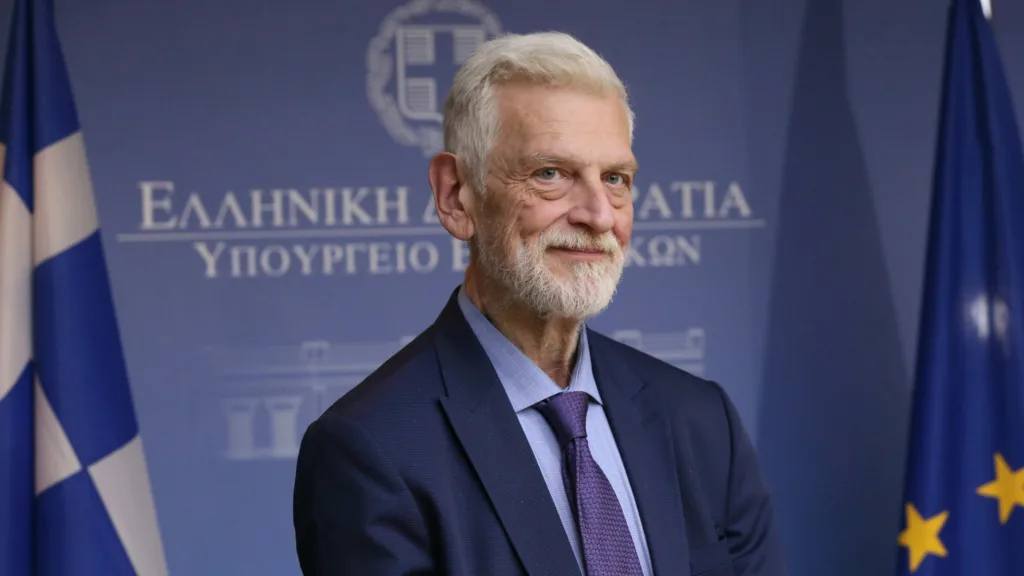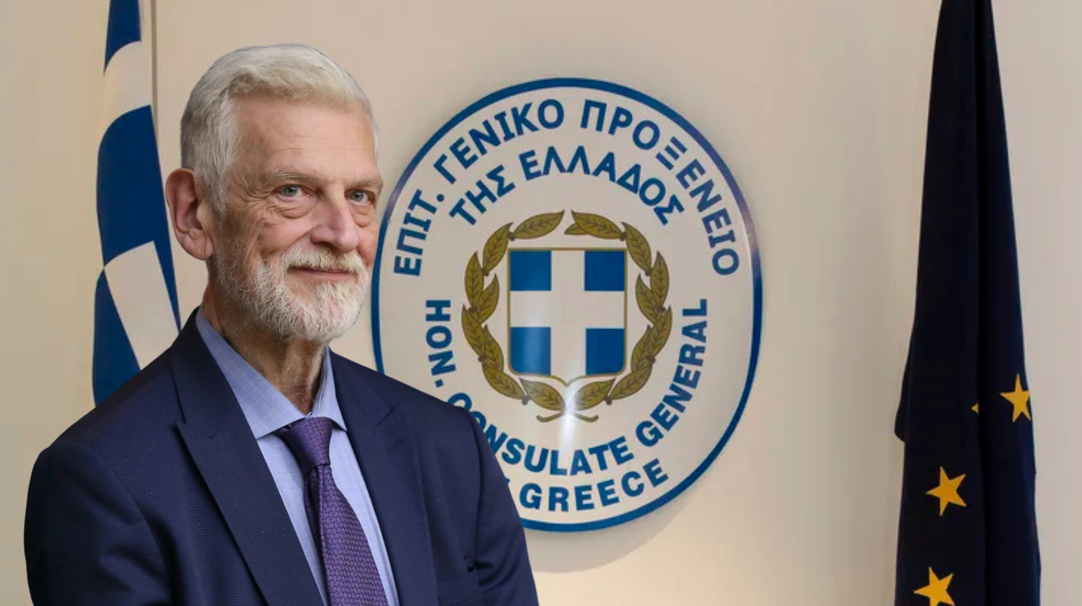Greece’s Deputy Foreign Minister for the Diaspora, Ioannis Michail Loverdos, has responded to a strongly worded open letter from prominent members of Queensland’s Greek Australian community calling for greater support to the state’s Honorary Consulate, particularly regarding its exclusion from the Greek Citizens’ Registry.
The open letter, published exclusively in The Greek Herald, was co-authored by leading figures such as John Lazarou, Co-Owner and Director of The Coffee Club, and Pedro Pikos, Founder of Pikos Group.
The authors express deep frustration at what they describe as a “second-class” status for the Queensland Honorary Consulate and its inability to access essential platforms used for registering births, marriages and deaths — a service considered vital for the large and geographically dispersed Greek population of the state.
“Why are Honorary Consulates, such as the Consulate General of Greece in Queensland, completely excluded from this vital platform?” the letter questions.
Queensland’s Honorary Consul, they argue, is unable to assist the community with basic civil matters due to exclusion from the Greek Citizens’ Registry (Μητρώο Πολιτών), a digital platform launched in January 2022 that streamlines civil registrations by consular authorities abroad. The system is only accessible to full, salaried consular officials, not honorary appointees.
“The current backlog of registrations we have been informed is enormous,” the letter states. “And yet the Consulate is powerless to assist, forced to redirect citizens elsewhere or explain that their hands are tied due to outdated bureaucracy and an unfair system of exclusion.”
Highlighting the scale and activity of Queensland’s Greek community — estimated at 30,000 to 40,000 people — the letter emphasises the Honorary Consul General’s unpaid role in supporting Hellenic culture, hosting national day celebrations, and serving the diaspora with limited resources.
“He funds his own office out of deep patriotism and love for the homeland… and still, he is treated as a second-class representative in the eyes of the Ministry,” it adds. “This is a plea for reform. A plea for reason. A plea for respect.”
The Greek Herald understands that according to Greek Law 4781/2021, honorary heads may retain up to 60% of total consular fee revenues to help cover expenses — a provision omitted from the open letter.

Loverdos responds: Legal limits and ongoing reforms
In a formal response to the letter and related enquiries by The Greek Herald, Deputy Foreign Minister Mr Loverdos reaffirmed the government’s commitment to serving the Greek diaspora and improving consular services.
“One of the main objectives of the Greek Ministry of Foreign Affairs, especially in the area of responsibility entrusted to me — the Hellenic Diaspora — is the best possible service to Greeks abroad and our compatriots in relation to their needs for communication and the resolution of matters with the Greek State through our respective consular authorities,” he wrote.
Addressing the core complaint — that honorary consuls are excluded from the Citizens’ Registry — Loverdos clarified that this is not a matter of discrimination but of legal and digital security constraints.
“Access to it [the Citizens’ Registry] has been granted only to salaried consular authorities,” he said, explaining that the system requires login via secure credentials held exclusively by Greek public servants who are bound by oath and subject to systemic monitoring.
“Individuals employed in honorary consulates who do not meet these criteria are, by definition, excluded.”
He noted that this restriction is essential to safeguarding the accuracy and legality of civil records, which form the basis for citizenship determination.
Loverdos also described the launch of the Citizens’ Registry as a sign of “significant progress,” resolving longstanding problems associated with manual communications between consulates and the Special Registry Office in Athens.

Acknowledgement of concerns and future considerations
Despite the firm legal position, Loverdos acknowledged that the issues raised by Queensland’s diaspora are legitimate and appreciated.
“The questions and ideas you conveyed from our compatriots in Queensland are especially useful and will be taken into account as we systematically examine how to better manage the side effects created by otherwise positive technological and procedural progress,” he said.
He added that the Greek Ministry is actively pursuing solutions through expanded digitisation, improved staffing of consular authorities, and collaboration with other state bodies.
“With the help of this ongoing digitisation, efforts to bolster our consular authorities with more personnel wherever possible — and potentially with the use of other appropriate means — we aim to continuously improve the services offered to Greeks abroad,” Loverdos wrote.
He also reiterated that the Ministry is committed to approaching the specific needs of each diaspora community with sensitivity, especially those in more remote areas or far from major consular posts.
“Respecting confidentiality, digital security, and legality, we are working toward addressing the particular needs of each diaspora community by region — particularly those most distant from metropolitan centres and existing consular authorities,” he concluded.
Ongoing advocacy
For their part, the signatories of the open letter maintain that their requests are not about entitlements, but fairness and functionality.
“The diaspora is not asking for favours. We are asking for fairness, for practical support, and for the tools that allow our community leaders — especially those who work voluntarily — to do their jobs effectively,” they wrote.
“If Athens is serious about strengthening ties with the diaspora, then it must stop tying the hands of those most committed to serving it.”
